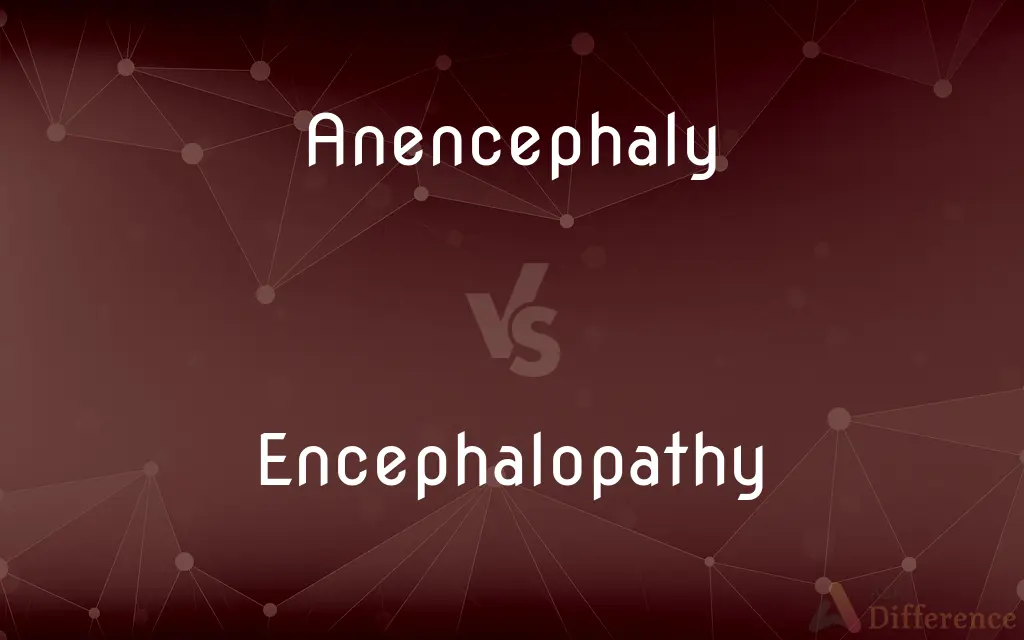Anencephaly vs. Encephalopathy — What's the Difference?

Difference Between Anencephaly and Encephalopathy
ADVERTISEMENT
Compare with Definitions
Anencephaly
Anencephaly is the absence of a major portion of the brain, skull, and scalp that occurs during embryonic development. It is a cephalic disorder that results from a neural tube defect that occurs when the rostral (head) end of the neural tube fails to close, usually between the 23rd and 26th day following conception.
Encephalopathy
Encephalopathy (; from Ancient Greek: ἐνκέφαλος "brain" + πάθος "suffering") means any disorder or disease of the brain, especially chronic degenerative conditions. In modern usage, encephalopathy does not refer to a single disease, but rather to a syndrome of overall brain dysfunction; this syndrome has many possible organic and inorganic causes.
Anencephaly
Congenital absence of most of the brain and spinal cord.
Encephalopathy
Any of various diseases of the brain.
Anencephaly
A lethal birth defect in which most of the brain and parts of the skull are missing; absence of the encephalon.
ADVERTISEMENT
Encephalopathy
Any of various conditions affecting the brain.
Anencephaly
A defect in brain development resulting in small or missing brain hemispheres
Encephalopathy
Any disease or symptoms of disease referable to disorders of the brain; as, lead encephalopathy, the cerebral symptoms attending chronic lead poisoning.
Encephalopathy
Any disorder or disease of the brain
Share Your Discovery

Previous Comparison
Framework vs. Paradigm
Next Comparison
Suncream vs. Sunscreen













































